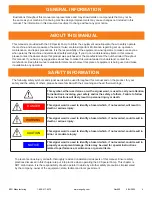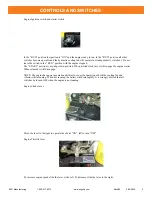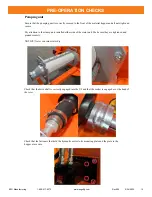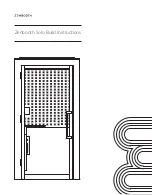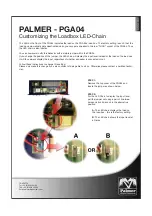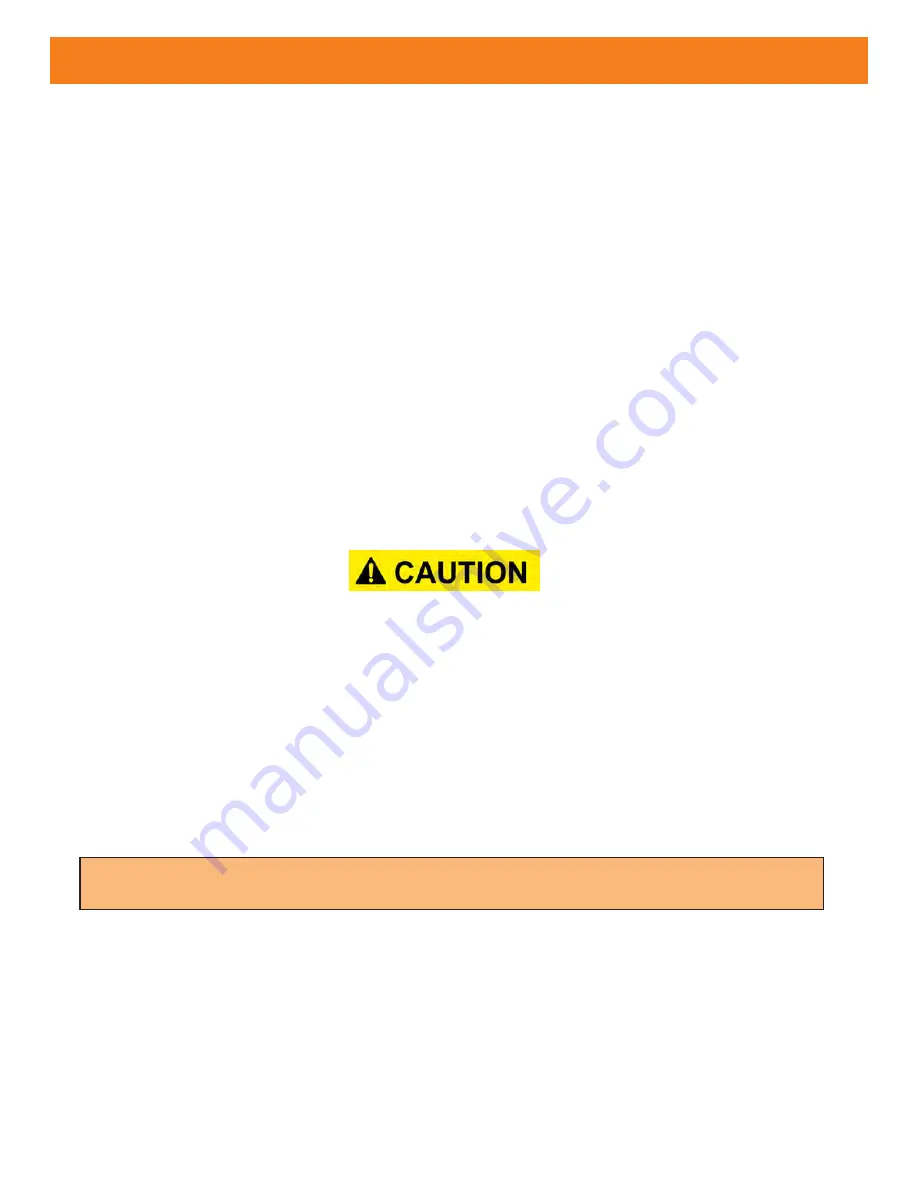
•
Before operation, inspect all hoses, fasteners, bolts, and welds for nicks, cracks, cuts, damage, wear, or
looseness before each use. Repair as needed.
•
Always wear approved PPE, including glasses, hearing protection, hard hats, and ventilation masks when
operating the machine.
•
Avoid contact with hot hydraulic oil.
•
Allow system to cool before performing any repairs or service, such as adding fuel, oil, or coolant.
•
Use only factory authorized parts.
•
Used lubricants such as engine oil, hydraulic oil, and hazardous waste must be taken to an authorized
disposal or recycling center.
•
The
38 Special
Pump must be stable before operating the machine. Level the machine if placed on a slope
or uneven terrain. Failure to comply may result in personal injury or equipment damage.
California - Proposition 65 Warning
Engine exhaust and some of its constituents, and some dust created by power sanding,
sawing, grinding, drilling, and other construction activities contains chemicals known to the
State of California to cause cancer, birth defects and other reproductive harm. Some examples of these
chemicals are:
Lead from lead based paints - Crystalline silica from bricks -Cement and other masonry products -Arsenic and
chromium from chemically treated lumber
Your risk from these exposures varies, depending on how often you do this type of work. To
reduce your exposure to these chemicals: ALWAYS work in a well ventilated area, and work
with approved safety equipment, such as dust masks that are specially designed to filter out microscopic
particles.
SAFETY PRECAUTIONS
Hydraulic System
•
The hydraulic system is under pressure and oil may be hot.
•
Always allow the machine to cool completely before performing service.
•
Always relieve pressure in the hydraulic system before performing service.
•
Always use appropriate safety equipment and clothing to protect exposed skin and eyes from high pressure
oil.
•
Tighten all connections to proper specifications before applying pressure.
•
Never use bare hands to check for leaks. Oil under pressure can penetrate the skin, and can cause
gangrene within a few hours if not properly removed. Use a piece of cardboard to check for leaks.
•
Inspect all hoses and fittings for signs of damage, wear scrapes, kinks, or cracking. Replace hoses i
f
any of
these conditions are found. It is recommended to replace all hydraulic hoses every 5 years.
Electrical System
•
Always disconnect the negative (-) before servicing, removing, or installing electrical components.
•
Always disconnect the negative terminal first and positive terminal last. Connect positive
terminal first and negative terminal last. Use care when dealing with live circuits to prevent
arcing. Arcing may result in death or serious injury.
•
Use care to prevent arcing when working on live circuits or components. Arcing can cause component
damage and may ignite flammable materials.
EZG Manufacturing 1-800-417-9272
www.ezgmfg.com
Rev000 5/24/2022 7




